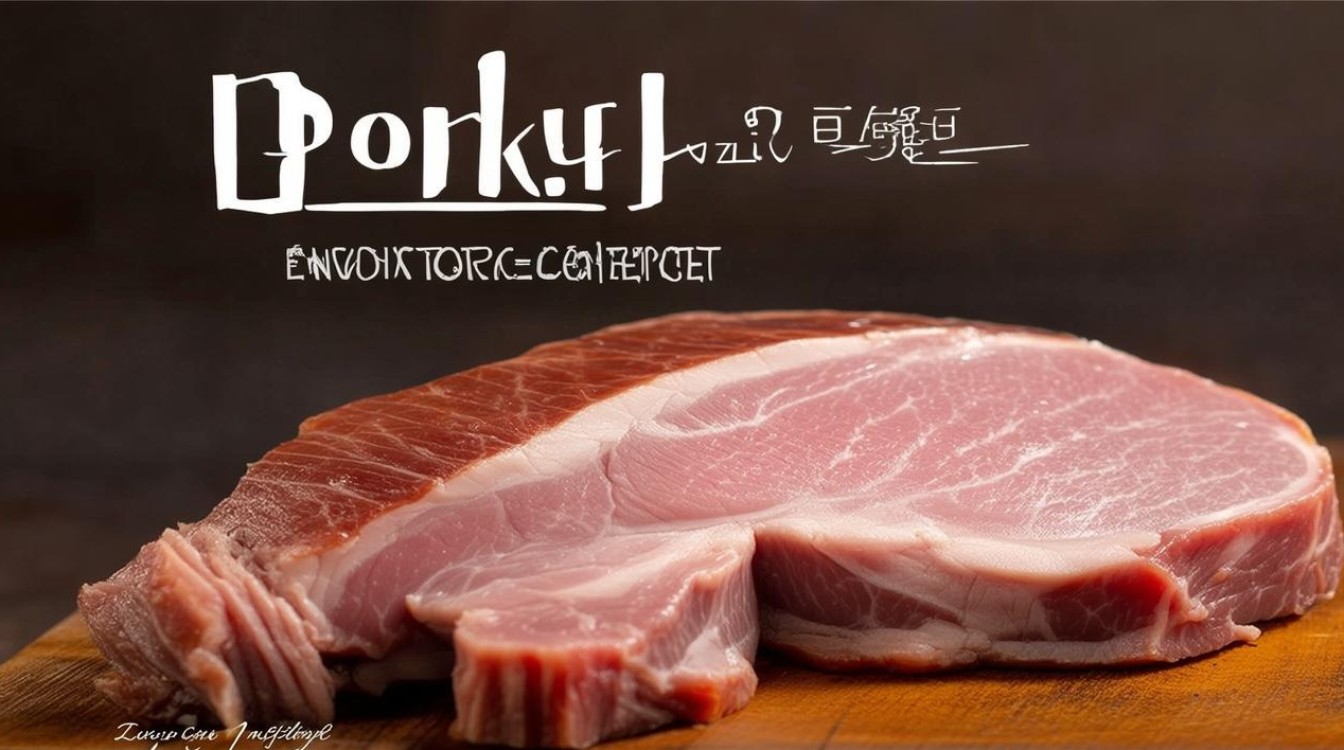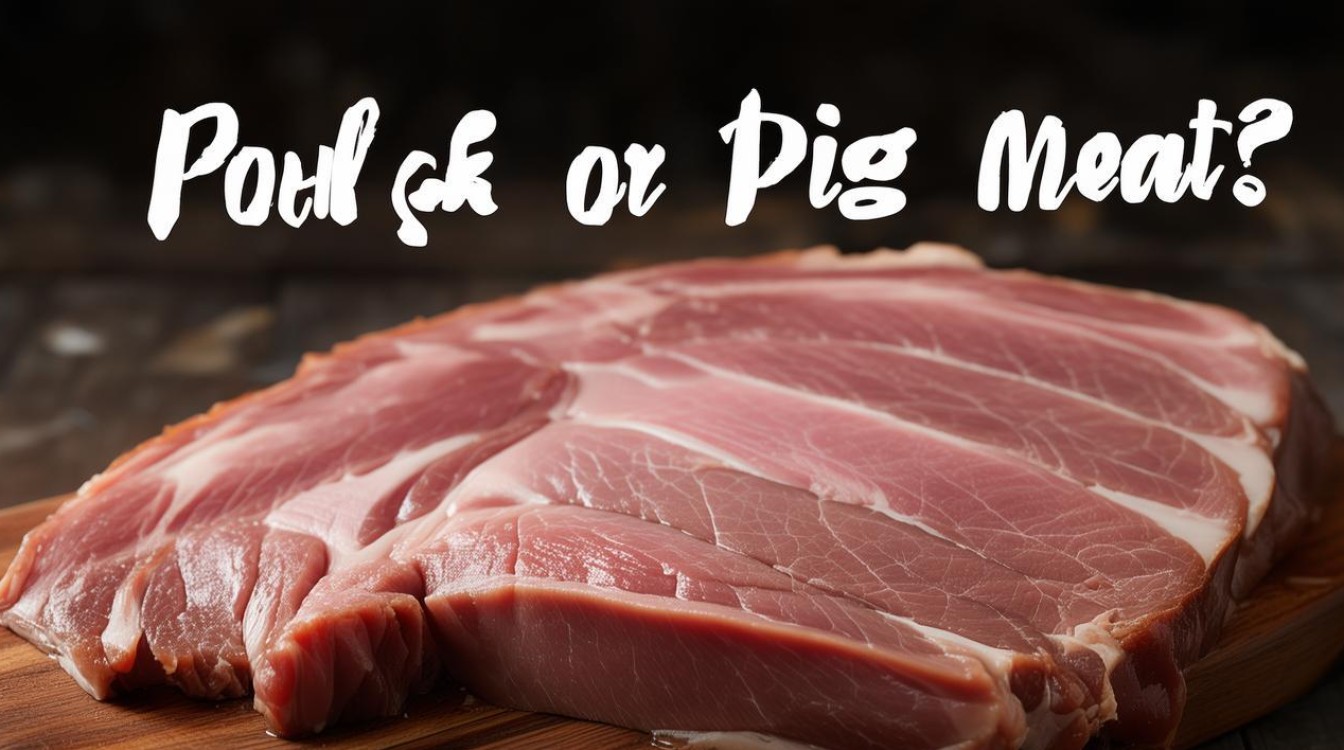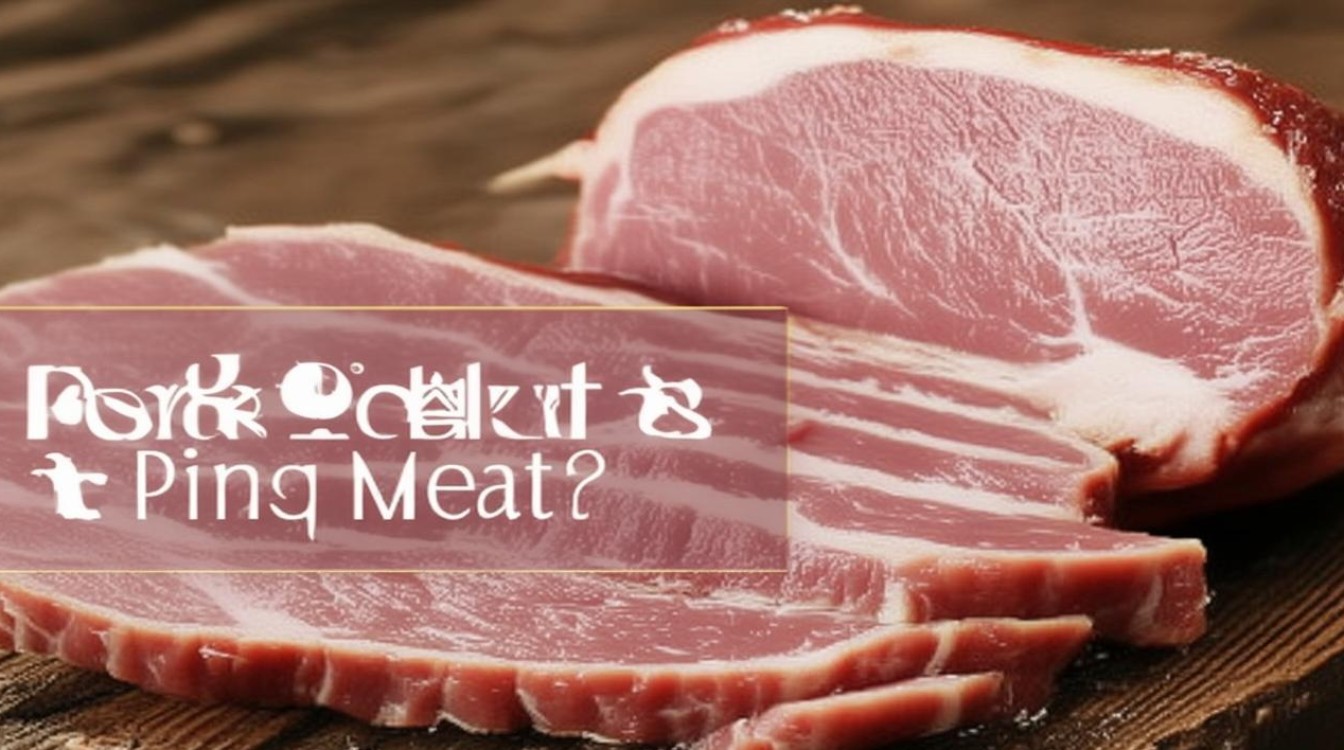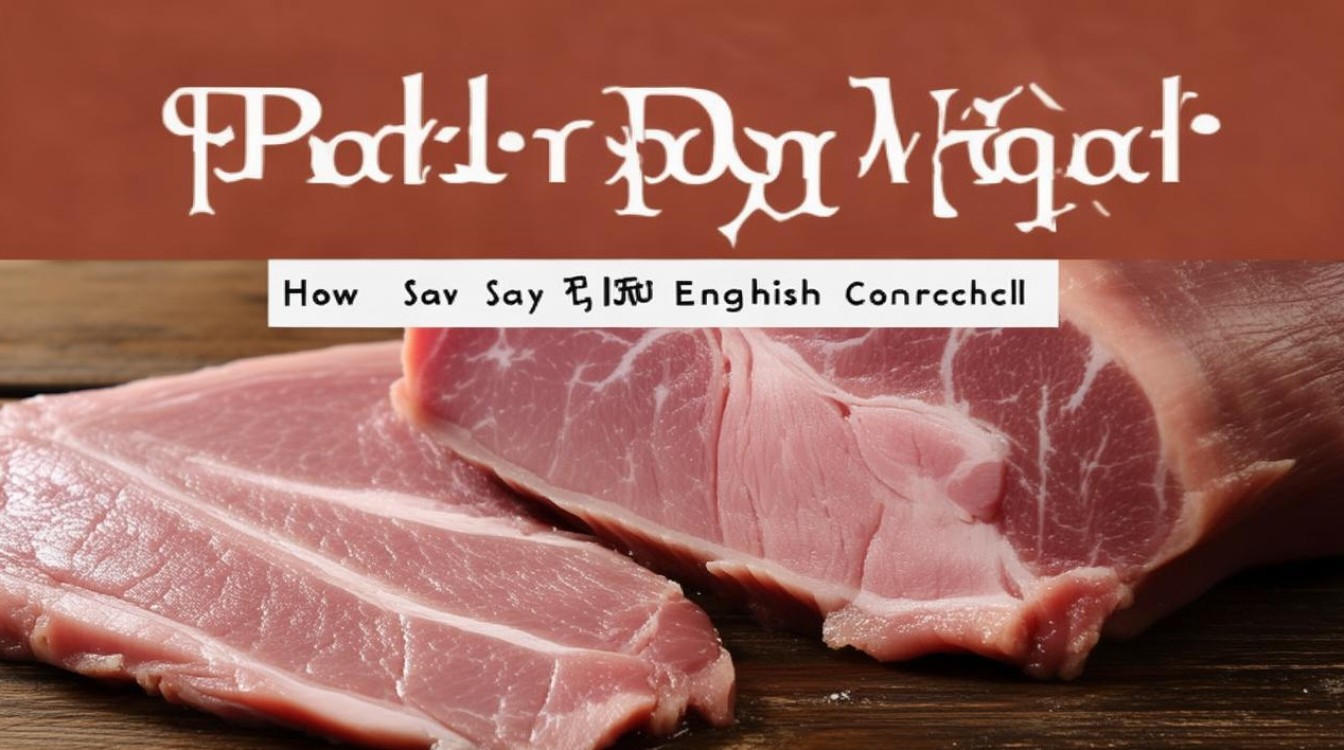When learning English, food vocabulary is essential for daily communication. Many Chinese learners wonder: what is the English word for "猪肉"? The answer is simple—"pork". However, understanding why English uses this term instead of "pig meat" reveals interesting linguistic and cultural differences.

Why "Pork" Instead of "Pig Meat"?
In English, meat from certain animals has distinct names rather than simply combining the animal’s name with "meat." This tradition dates back to the Norman Conquest of England in 1066. After the invasion, French-speaking nobles ruled over Anglo-Saxon peasants. The peasants raised livestock (using Old English words like pig, cow, and sheep), while the nobility dined on the meat (using French-derived terms like pork, beef, and mutton).
Here’s a quick comparison:
| Animal (English) | Meat (French-derived) |
|---|---|
| Pig | Pork |
| Cow | Beef |
| Sheep | Mutton |
| Chicken | Chicken (no change) |
This distinction persists today, making "pork" the correct term for 猪肉 in English.
Common Mistakes and Confusions
Some learners mistakenly say "pig meat," which sounds unnatural in English. While technically understandable, native speakers rarely use this phrasing. Similarly, "boar meat" refers specifically to meat from wild pigs, not domestic pork.

Another confusion arises with "bacon." Though made from pork, bacon specifically refers to cured and smoked pork belly or back cuts. Ham, sausages, and ribs are all pork-based but have unique names.
Pork in Different English Dialects
English varies globally, but "pork" remains standard in all major dialects:
- American English: Uses "pork" universally (e.g., pork chops, pulled pork).
- British English: Also uses "pork," though dishes like "gammon" (cured pork leg) are more common in the UK.
- Australian English: Follows British conventions but with local terms like "pork belly" for grilled dishes.
How to Use "Pork" in Sentences
To master the word, practice these common phrases:
-
Ordering food:

- "I’d like the pork dumplings, please."
- "Does this dish contain pork?"
-
Cooking:
- "Marinate the pork overnight for better flavor."
- "Roast pork should reach an internal temperature of 145°F (63°C)."
-
Shopping:
- "Where is the pork section in this supermarket?"
- "Is this pork organic?"
Cultural Notes on Pork
Pork holds different significance across cultures:
- Western cuisines: Pork is a staple, featured in dishes like German sausages, Italian prosciutto, and American barbecue.
- Religious dietary laws: Pork is forbidden in Islam (halal) and Judaism (kosher), so alternatives like beef or chicken are preferred.
- Chinese cuisine: Pork dominates dishes like char siu (叉烧), dumplings, and braised pork belly (红烧肉).
Pork vs. Other Meats in English
Unlike pork, some meats retain the animal’s name:

- Chicken: Both the animal and meat share the same term.
- Fish: Generally called "fish meat" or simply "fish" (e.g., "salmon" for the meat).
- Game meats: Venison (deer), rabbit, and duck are exceptions with unique names.
Fun Facts About Pork
- Pork is the most consumed meat globally, surpassing chicken and beef in many regions.
- "Pork barrel" is an English idiom referring to government spending for local projects to gain political favor.
- Pig farming is called "swine husbandry" in formal contexts.
Final Thoughts
Knowing the correct English term for 猪肉 helps avoid awkward phrasing. "Pork" is precise, culturally accurate, and universally understood. Whether dining out, cooking, or shopping, using this word ensures clear communication. Next time you see a menu, confidently order "pork dishes" and impress others with your language skills.
Language reflects history, and "pork" is a delicious example of how words evolve. From Norman feasts to modern barbecues, this term bridges cultures—one flavorful bite at a time.


